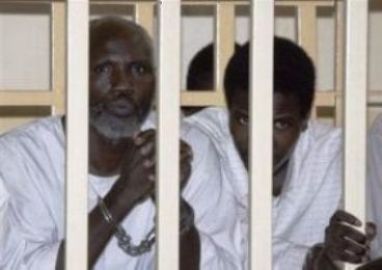JEM members in Khartoum prison stage hunger strike
August 13, 2013 (KHARTOUM) – The detainees of the Justice and Equality Movement (JEM) in Khartoum North Common Prison (also known as Kober prison) have begun a hunger strike on Monday protesting what they described as “cruel treatment” by the penitentiary officers.

JEM spokesperson Gibreel Adam Bilal said in a statement released on Sunday that the former head of JEM intelligence has been placed in a solitary confinement in Kober prison in a cell normally reserved for prisoners awaiting their turn for execution.
He further added that the cell were Usher is being detained is full of rainwater with overflowing sewage stressing that such conditions prevent him from sleeping.
Bilal, on Tuesday, announced that JEM detainees have decided to begin an indefinite hunger strike, saying that “it would only be lifted when prison authorities refrain from exercising psychological and physical torture, unshackle them, and allow family and human rights organizations visits”.
The statement held the prison authorities responsible for the safety and health conditions of its affiliates and demanded improving their family, health, human, and psychological conditions. It also urged human rights organizations to report their dire human condition.
Sudanese courts sentenced to death some 70 JEM members, including Usher, captured after an attack they mounted on the Sudanese capital in May 2008..
None of the condemned rebels is executed, but Khartoum, during the Doha peace process, refused to free them within the framework of a good will agreement providing to exchange prisoners.
Only few of them were released under the pressure of the mediation and Qatari government which facilitated the talks.
(ST)
